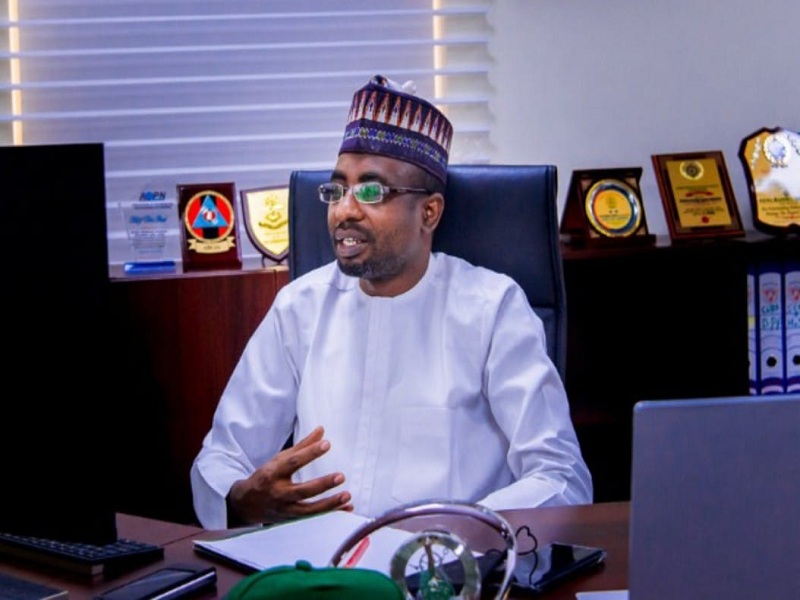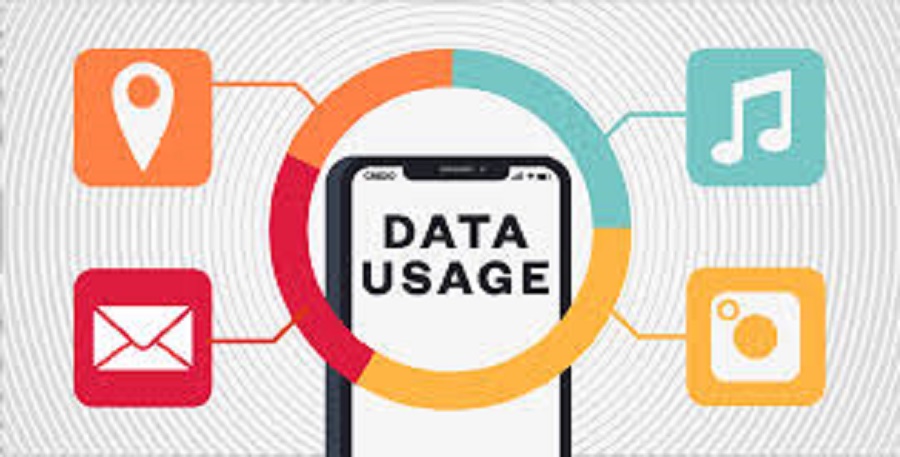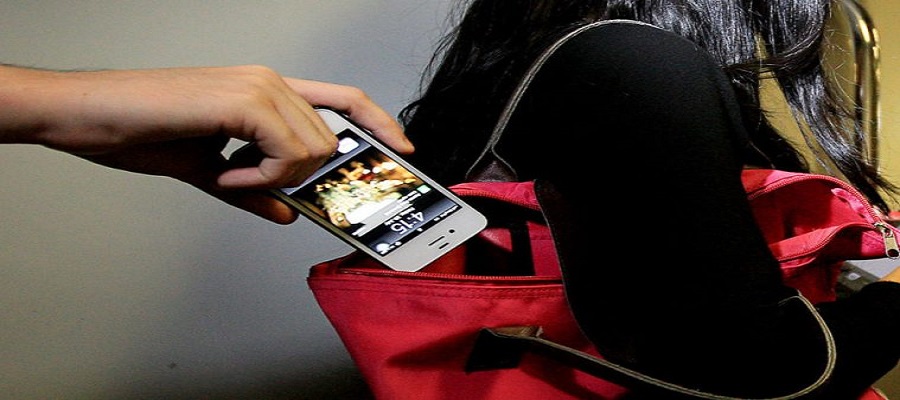Telecom
NITDA to Leverage on AfCTA to Build Digital Market in the World

As Nigeria is moving fast towards diversifying its economy using technology, the National Information Technology Development Agency (NITDA), has proposed partnership with Republic of Namibia in the areas of Innovations and Entrepreneurship through African Continental Free Trade Area (AfCTA).

Mallam Kashifu Inuwa Abdullahi , Director General of NITDA
This is because Africa as a continent lost out during the First, Second and Third Industrial Revolutions due to the huge capital investments but with the Fourth Industrial Revolutions comes endless opportunities that all it needs is talent and vibrant, young technological driven generation.
It is therefore imperative for African countries to encourage “Made in Africa” products by exploring and exploiting opportunities provided by emerging technologies to build an enviable global market standard.
The agreement in finding a viable route for digital trade resolution was made when the High Commissioner of Namibia to Nigeria and Permanent Representative to ECOWAS, His Excellency, Mr Humphrey D Geiseh paid a courtesy visit to the Agency’s Corporate Headquarters, Abuja.
Mallam Kashifu Inuwa Abdullahi , Director General of NITDA, expressed his delight and privilege at the High Commissioner’s enthusiasm in seeking collaborations with NITDA in building a stronger relationship and developing technological products between the two countries.
Abdullahi stated that the Agency has been implementing the National IT Policy until 2019 when the Ministry’s mandate was expanded to cover Digital Economy.
He averred that this was because Communications was not an end but a means to an end.
He said it was important to calibrate activities and align them with the National Digital Economy Policy and Strategy (NDEPS) which necessitated the Agency to come up with a new Strategic Road Map and Action Plan.
The DG stated that ‘Emerging Technologies’ which is a strategic pillar in the road map should be used to create and capture technological values in Africa.
“These emerging technologies come with promises and perils and the Agency’s focus is to avoid the perils and achieve the promises”, he noted.
He disclosed that the Agency established the National Centre for Artificial Intelligence and Robotics specifically for researching best ways to apply these technologies in the Health and Agricultural sector just to mention a few.
“I will invite you to visit our Centre as well and see how you can borrow some of the ideas and domesticate it in Namibia”, Abdullahi said.
The DG mentioned that “Promoting Indigenous and Local Content, which is another strategic pillar of the Agency is aimed at supporting local start-ups and encouraging Made in Africa products.
He opined that African countries should share experiences and ideas in order to build world class product while laying emphasis that it is easier to procure products from neighbouring countries rather than other continents.
“Micro, Small and Medium Enterprises in the country provide about 95% of the workforce and produce more than 50% of the Nation’s GDP.
“It is therefore necessary to ignite processes in the digital ecosystem with the use of technology.
” Innovations don’t happen in isolation, you need to connect with what others are doing in other parts of the world and apply them domestically to create wealth for the Nation and the continent at large”, Abdullahi noted.
The DG said that Agriculture, which is one of the major sources of income in Namibia is one of the areas the Agency identified in which technology can be used as a game changer.
He stated that the National Adopted Village for Smart Agriculture, (NAVSA) which is one of the initiatives of the Agency can help Namibia boost her productivity in Agriculture.
“This is an area we can explore partnership where we can get some startups who can develop solutions for you and on our part, also learn how you manage your agricultural business.”
“NITDA has a yearly flagship programme called ‘e-Nigeria’, an international conference and exhibition programme where local start-ups are invited to showcase their products, and this year’s programme would be tagged ‘Digital Nigeria’ because of the evolution from electronic to digital system.
“We are having a one-week Digital Nigeria International Conference and we are extending the invitation to you.
“You can bring people from Namibia to the conference to have a glimpse of our ecosystem where you will meet some of our startups, share ideas, challenges and see how we can use technology to grow our economy as a continent”, Abdullahi concluded.
His Excellency, Mr Geiseh in his earlier remark said that Namibia and Nigeria are both African countries who have been long standing friends since Namibia’s independence.
He disclosed that Namibia has a population of about 2.4 million and almost one-third of her population are internet users according to statistics as of 2018.
He mentioned that the country is committed to providing necessary opportunities for the youth to be exposed to concepts and technologies that will dominate their lives in the near future.
“In Namibia, we recognise the role of the youths in the development of the country in the future prosperity of the Nation which has prompted our visit today to basically know how your agency has advanced in the areas of ICT so we can identify common challenges and proffer solutions in areas where both countries can work together”, the High Commissioner disclosed.
Telecom
NCC Asks Consumers to Monitor Data Usage to Authenticate Consumption

Nigerian Communications Commission (NCC) has charged the over 174 million telecoms subscribers in the country to constantly monitor their data usage to authenticate their consumption level.

This follows concerns being raised by telecoms consumers about the rapidity of data depletion on their devices.
The Commission particularly enjoined the consumers to always contact their service providers to make requests for cases of discrepancies noted in their data usage.
While the consumers are expected to contact their service providers to request for their usage history/statement where inconsistency exists in their data usage as first step, the Commission said they may also escalate such issues to the Commission through its toll-free Number 622 and social media platforms, especially if their requests are not satisfactorily handled.
The Commission, which also made some clarifications regarding the concerns being raised by the consumers around data usage, said the need to inform the consumers on their concerns is part of its commitment to protect and appropriately inform and educate the telecom consumer on industry issues.
Making further clarifications around data speed and usage, the Commission said data speed is the speed at which data is transferred between two devices, measured in megabits per second (Mbps or mbps), stressing that given the spread of Internet services and the immense investment in the sector, data rates have continued to increase and users may be unaware of how to measure data speed.
The telecoms regulator explained further that websites such as www.fast.com also provide an easy way for consumers to measure Internet speed on any device at any location.
“The higher the data speed, the quicker pages load-downloads and uploads-occur and expectedly, the quicker data bundles are exhausted. So, as telecom consumers are able to do more on devices in less time, some consumers’ devices & network service providers make it possible to limit data speed to help users manage data usage better.
“In any case, most devices now include functions to measure data used by devices and it is imperative that users monitor same to authenticate data usage, such as applications left running on devices. Therefore, where discrepancies occur users may contact their service provider to request for their usage history/statement. If request is not dealt with satisfactorily then, users can contact NCC by calling 622 or engage the Commission via its social media platforms”.
It added that the data usage experience is a function of location, network equipment and users connected in a particular location.
Telecom
Phone Theft: AMCODET Urges Mandatory Registration @ Point of Purchase

Association of Mobile Communication Device Technicians of Nigeria (AMCODET), has called on the Nigerian Communications Commission (NCC) to make it mandatory for mobile phones to be registered at the point of purchase.

According to Kehinde Apara, president of AMCODET, implementing this registration process would significantly help in combating phone theft and assist in locating stolen devices.
Apara, made this appeal in an interview in Lagos on Monday.
He stated, “Registration of mobile phones will reduce theft to the barest minimum, as it will be difficult for thieves to sell registered stolen phones.”
Apara explained that the registration of new phones would also help to reduce the harassment faced by technicians by security agencies.
“So many of our members have been labelled accomplices in theft cases, because customers bring stolen phones to them to repair. We believe this is unfair to such innocent people,” he said.
He went on to highlight that the NIN-SIM linkage, which was originally an idea brought forward by AMCODET, was created to curb insecurity and theft.
However, Apara pointed out that “It is not enough.”
He stressed the need for further measures to ensure the proper registration of mobile phones, emphasising that such a step would make it easier for technicians to identify stolen devices brought in for repair or flashing.
“AMCODET has been at the forefront of organising seminars on the security of mobile phones and has also been sensitising the public and authorities on the challenges faced by the association due to phone theft. There is no way our members can identify if a phone is stolen when brought to them for repairs or flashing, but if the phone is registered, the technician can more easily identify it,” he explained.
Apara also expressed a desire for closer collaboration with security agencies, saying, “We want to work with security agencies to ensure that phones are properly registered, theft is prevented, and thieves are brought to book.”
In additin to the call for phone registration, Apara appealed to individuals and the private sector to support efforts to develop the mobile phone industry in Nigeria.
He remarked, “We need individuals’ support to develop our industry, rather than relying on government for everything.”
He emphasised that Nigeria has the capacity to develop its own technology and reduce reliance on imported devices, “With the support of individuals and the private sector, Nigerians can begin to develop its own technology, rather than relying on imported technology.”
Apara expressed optimism for the future of the mobile phone industry in Nigeria, believing that with the right support, the country could build its own technological solutions and move towards greater self-reliance.
“We can develop our own technology.”
“But we need the support of individuals and organisations to make it happen,” he said.
Credit: NAN
Telecom
Apple Faces €150M Fine in France Over Alleged Antitrust Violations

French antitrust regulators have fined Apple 150 million euros ($162 million) over its App Tracking Transparency (ATT) feature, which is facing scrutiny in multiple European countries.

The French Competition Authority ruled that Apple’s implementation of ATT was “neither necessary nor proportionate to the company’s stated goal to protect user data” and unfairly penalized third-party publishers.
Alongside the financial penalty, Apple has been ordered to publish the decision on its website for seven days. The ruling comes amid ongoing investigations in Germany, Italy, Romania, and Poland into ATT, which Apple introduced in 2021 as a privacy safeguard.
ATT requires apps to obtain explicit user consent via a pop-up before tracking activity across other apps and websites. If users decline, the app loses access to their advertising identifier, limiting targeted advertising. Critics argue that the system disproportionately benefits Apple by restricting competitors while promoting its own advertising services.
The French watchdog found that ATT forces users to navigate excessive consent windows for third-party apps on iPhones and iPads, making the process unnecessarily complicated.
Additionally, Apple’s system requires users to opt out of ad tracking twice rather than once, which the authority said undermines the feature’s neutrality and causes economic harm to app publishers and ad service providers.
The ruling emphasized that smaller publishers, which rely heavily on third-party data collection for revenue, are particularly affected.
The French regulator initially declined to impose emergency measures in 2021 after complaints from the advertising industry, but continued its investigation, ultimately leading to Monday’s decision.

 Telecom2 days ago
Telecom2 days agoMTN, Lynk Global Make Africa’s First Satellite-to-Mobile Call

 E-Financial2 days ago
E-Financial2 days agoNigeria Gets Fresh $500m World Bank Loan for Economic Stimulus Programme

 General News2 days ago
General News2 days agoSERAP Asks National Assembly to Drop Bill to Jail Nigerians who Fail to Vote

 E-Business2 days ago
E-Business2 days agoSystemSpecs’s Subsidiary Deelaa Becomes Whatadeal

 E-Financial2 days ago
E-Financial2 days agoUninsured Depositors of Heritage Bank to Receive Liquidation Dividends In April – NDIC

 Telecom2 days ago
Telecom2 days agoSmart Treasure Investment Team’s Initiatives Eradicate Poverty, Says Aminu

 E-Business2 days ago
E-Business2 days agoCybersecurity Firm Says It’s Time to Back it Up, As the World Marks World Backup Day

 Telecom2 days ago
Telecom2 days ago15-Year-Old Autistic Artist, Kanye, to Unveil World’s Largest Art Canvas on Autism Awareness Day


























